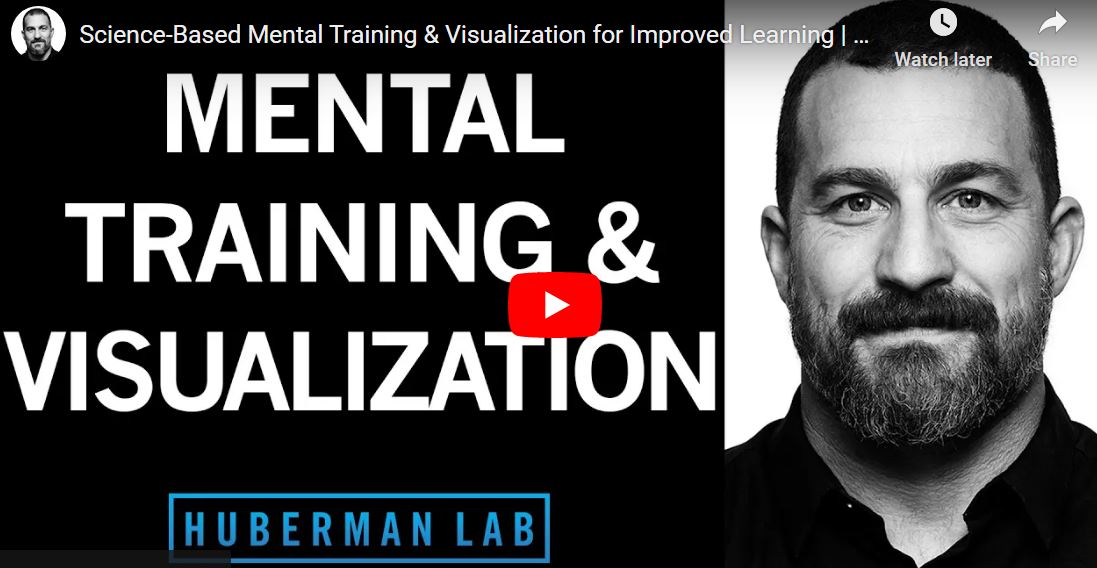If you’re not convinced of the value of mental training as a powerful tool to improve performance in sports and other achievement areas, I encourage you to listen to this podcast by Dr. Andrew Huberman that explores the science behind mental training.
If you’re unfamiliar with Dr. Huberman, he’s a noted neuroscientist and a member of the faculty at the Stanford University School of Medicine, so the guy is legit.
And if you want to really go science on this topic, you can read the peer-reviewed literature that examines the research that Dr. Huberman provides:
- Statistics of Mental Imagery (Mind)
- Best practice for motor imagery: a systematic literature review on motor imagery training elements in five different disciplines (BMC Medicine)
- Sleep and the Time Course of Motor Skill Learning (Learning & Memory)
- Mental practice modulates functional connectivity between the cerebellum and the primary motor cortex (iScience)
- Motor Imagery Combined With Physical Training Improves Response Inhibition in the Stop Signal Task (Frontiers in Psychology)
- What is the relationship between Aphantasia, Synaesthesia and Autism? (Consciousness and Cognition)
- Chapter 15 – Aphantasia: The science of visual imagery extremes (Handbook of Clinical Neurology)
- Visual mental imagery and visual perception: Structural equivalence revealed by scanning processes (Memory & Cognition)
- Using motor imagery practice for improving motor performance – A review (Brain & Cognition)
- Motor Imagery Combined With Physical Training Improves Response Inhibition in the Stop Signal Task (Frontiers in Psychology)
- Visual images preserve metric spatial information: Evidence from studies of image scanning. (Journal of Experimental Psychology: Human Perception and Performance)
- Acquisition and consolidation processes following motor imagery practice (Scientific Reports)







